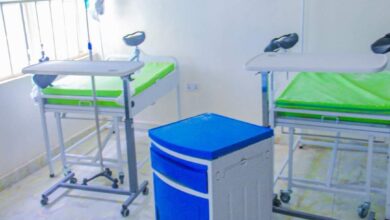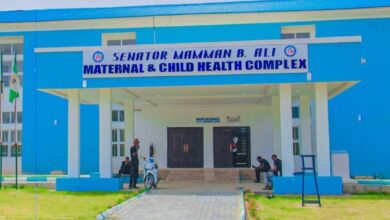The Important of Exploring the Medical World in Nigeria

Exploring the Medical World in Nigeria
Nigeria, the vibrant heart of West Africa, is a country brimming with rich cultural diversity, stunning landscapes, and a rapidly evolving healthcare sector. In recent years, Nigeria has made significant strides in advancing its medical infrastructure, improving access to healthcare services, and nurturing a growing community of skilled healthcare professionals. Let’s delve into the fascinating medical world of Nigeria!

Healthcare Infrastructure: Nigeria boasts a network of healthcare facilities, including public and private hospitals, clinics, and specialized medical centers. Major cities like Lagos, Abuja, and Port Harcourt are home to state-of-the-art medical institutions equipped with modern technology and staffed by highly trained healthcare personnel. These facilities cater to a wide range of medical specialties, offering advanced diagnostics, surgical procedures, and comprehensive healthcare services.
Healthcare Professionals: Nigeria takes pride in its pool of dedicated healthcare professionals, comprising doctors, nurses, pharmacists, technicians, and allied healthcare workers. The country has numerous medical schools and training institutions that produce competent and compassionate healthcare practitioners. Many Nigerian doctors and nurses have gained international recognition for their expertise, and Nigerian medical professionals can be found working across the globe, contributing their skills to the global healthcare community.
Medical Research and Innovation: Nigeria is actively engaged in medical research and innovation. Universities, research institutes, and medical centers collaborate to explore solutions to prevalent health challenges faced by the nation. These efforts include studying infectious diseases, improving maternal and child healthcare, advancing pharmaceutical research, and developing innovative medical technologies. By fostering a culture of research and innovation, Nigeria strives to enhance healthcare outcomes and contribute to the global medical knowledge base.
Healthcare Challenges and Progress: Nigeria faces several healthcare challenges, including inadequate infrastructure in rural areas, limited access to quality healthcare for marginalized populations, and the burden of communicable diseases. However, the government and various organizations are working tirelessly to address these issues. Initiatives like the National Health Insurance Scheme (NHIS) aim to improve healthcare affordability and accessibility, while vaccination campaigns and disease control programs have made significant strides in combating diseases such as malaria, HIV/AIDS, and polio.
Telemedicine and Digital Health: In recent years, Nigeria has witnessed a surge in telemedicine and digital health services. Leveraging the power of technology and the increasing penetration of smartphones, healthcare providers are connecting with patients remotely, enabling access to medical consultations, diagnostics, and prescriptions. These digital platforms have proven especially valuable in reaching rural areas and underserved communities, bridging the gap between patients and healthcare professionals.
The medical world in Nigeria is on an exciting trajectory of growth and transformation. As the country continues to invest in healthcare infrastructure, research, and the development of skilled professionals, it is poised to make significant contributions to the global medical landscape. With a collective determination to improve healthcare access and quality, Nigeria is shaping a brighter future for the well-being of its citizens and beyond.
???????? #NigeriaHealthcare #MedicalAdvancements #HealthcareInnovation #NigerianMedicine
Healthcare infrastructure refers to the physical facilities, equipment, and systems that support the delivery of healthcare services in a particular region or country. It encompasses a wide range of components, including hospitals, clinics, medical laboratories, diagnostic centers, pharmaceutical supply chains, information systems, and more. Here are some key points about healthcare infrastructure:
- Hospitals and Medical Centers: These are the primary healthcare facilities that provide a wide range of medical services, including emergency care, surgeries, specialized treatments, and inpatient care. They vary in size and capacity, ranging from small community clinics to large tertiary care hospitals equipped with advanced medical technology.
- Clinics and Primary Healthcare Centers: These facilities focus on providing primary and preventive healthcare services to the community. They are often the first point of contact for patients seeking non-emergency medical care and play a crucial role in promoting public health and disease prevention.
- Diagnostic and Imaging Centers: These centers are equipped with advanced medical equipment such as X-ray machines, MRI scanners, CT scanners, and laboratories for conducting various diagnostic tests. They play a vital role in the accurate diagnosis of diseases and aid in treatment planning.
- Pharmaceutical Supply Chain: A robust healthcare infrastructure includes an efficient supply chain for pharmaceutical products, ensuring the availability of essential medicines, vaccines, and medical supplies. This involves procurement, storage, distribution, and quality control to meet the healthcare needs of the population.
- Information Systems and Technology: Modern healthcare infrastructure relies on robust information systems and technology to facilitate efficient healthcare delivery, patient records management, electronic prescribing, telemedicine services, and data analytics for public health monitoring and research.
- Rural Healthcare: Establishing healthcare infrastructure in rural and remote areas is a critical challenge. Mobile clinics, telemedicine, and outreach programs are often employed to ensure access to healthcare services for underserved populations.
- Public and Private Sector Collaboration: The healthcare infrastructure may involve a collaboration between public and private sectors. Public healthcare facilities are often government-funded and aim to provide affordable and accessible care, while private facilities offer a range of services catering to different segments of the population.
- Disaster Preparedness: A resilient healthcare infrastructure includes plans and resources for managing emergencies and natural disasters. This involves developing contingency plans, stockpiling essential supplies, training healthcare professionals, and establishing coordination systems for effective response and recovery.
Building and maintaining a robust healthcare infrastructure is crucial for ensuring the availability, accessibility, and quality of healthcare services. Governments, healthcare organizations, and stakeholders continuously work to invest in and improve healthcare infrastructure to meet the evolving healthcare needs of the population and enhance overall healthcare outcomes.
Healthcare professionals are individuals who are trained and qualified to provide medical care, treatment, and support to patients. They play a vital role in the healthcare system, working in various settings, including hospitals, clinics, private practices, research institutions, and public health organizations. Here are some key points about healthcare professionals:
- Doctors (Physicians): Doctors, also known as physicians, are medical professionals who diagnose and treat illnesses, injuries, and diseases. They have completed medical school and usually specialize in specific fields such as internal medicine, pediatrics, surgery, cardiology, and many others. Doctors are responsible for examining patients, ordering diagnostic tests, prescribing medications, performing surgeries, and providing ongoing medical care.
- Nurses: Nurses are essential members of the healthcare team who provide direct patient care and support. They work closely with doctors and other healthcare professionals, assisting in patient assessments, administering medications, monitoring patients’ conditions, and educating them about their health. Nurses can specialize in areas such as pediatric care, critical care, psychiatric care, or community health.
- Pharmacists: Pharmacists are experts in medications. They dispense prescription drugs, provide medication counseling to patients, and ensure the safe and effective use of medications. Pharmacists collaborate with doctors to optimize drug therapy, manage medication-related issues, and promote patient safety.
- Dentists: Dentists specialize in oral health, diagnosing and treating dental conditions, performing dental procedures, and providing preventive care. They may perform routine dental check-ups, cleanings, fillings, extractions, root canals, and other dental treatments.
- Allied Healthcare Professionals: Allied healthcare professionals work alongside doctors and nurses, providing specialized services that contribute to patient care. This group includes professionals such as physiotherapists, occupational therapists, medical laboratory scientists, radiographers, medical technologists, respiratory therapists, and dietitians. They play crucial roles in rehabilitation, diagnostics, medical imaging, laboratory testing, and therapeutic interventions.
- Medical Researchers: Medical researchers conduct scientific studies and clinical trials to advance medical knowledge, develop new treatments and therapies, and improve patient care. They contribute to medical breakthroughs, drug discoveries, and innovations that shape the future of healthcare.
- Public Health Professionals: Public health professionals work to improve the overall health of populations. They focus on preventing diseases, promoting health education, managing public health emergencies, conducting epidemiological investigations, and implementing health policies and interventions at the community and population level.
Healthcare professionals undergo extensive education and training to acquire the necessary skills and knowledge in their respective fields. They are committed to providing compassionate care, upholding ethical standards, and staying updated with the latest medical advancements and research. Collaboration among healthcare professionals is crucial for delivering comprehensive and coordinated healthcare to patients, ensuring their well-being and optimal health outcomes.
Medical research and innovation play a crucial role in advancing healthcare, improving patient outcomes, and shaping the future of medicine. Here are some key points about medical research and innovation:
- Advancing Scientific Knowledge: Medical research aims to expand our understanding of diseases, their causes, and their mechanisms. Researchers investigate various aspects of health and disease, exploring new insights into disease prevention, diagnosis, and treatment. By conducting rigorous studies and experiments, they contribute to the growing body of scientific knowledge.
- Clinical Trials: Clinical trials are research studies conducted with human volunteers to evaluate the safety and effectiveness of new drugs, treatments, or medical interventions. These trials are essential in determining the efficacy and potential side effects of new therapies before they are approved for widespread use. They adhere to strict ethical and regulatory guidelines to ensure participant safety and informed consent.
- Disease Prevention and Control: Medical research plays a significant role in identifying risk factors for diseases and developing strategies for prevention and control. Researchers investigate lifestyle factors, genetic predispositions, environmental influences, and public health interventions to reduce the incidence and impact of diseases such as cancer, cardiovascular diseases, infectious diseases, and more.
- Development of Innovative Therapies: Medical research drives the development of new therapies and medical technologies. Researchers explore innovative approaches such as gene therapy, immunotherapy, precision medicine, regenerative medicine, and targeted drug therapies. These advancements offer potential breakthroughs in treating complex diseases and improving patient outcomes.
- Translational Research: Translational research focuses on bridging the gap between scientific discoveries and their practical applications in clinical settings. It involves taking promising research findings from the laboratory and applying them to develop new diagnostics, treatments, and medical interventions. Translational research aims to accelerate the translation of scientific knowledge into tangible benefits for patients.
- Collaboration and Knowledge Sharing: Medical research thrives on collaboration among scientists, healthcare professionals, institutions, and funding agencies. Researchers often collaborate across disciplines, institutions, and countries to leverage expertise, share resources, and accelerate progress. International collaboration fosters the exchange of knowledge, best practices, and research findings to address global health challenges collectively.
- Ethical Considerations: Medical research adheres to strict ethical guidelines and regulatory frameworks to ensure the protection of human subjects and the responsible conduct of research. Institutional review boards and ethics committees oversee the ethical aspects of research, ensuring participant consent, privacy, and safety.
- Data Analysis and Big Data: With the increasing availability of electronic health records and the accumulation of vast amounts of healthcare data, researchers can analyze big data sets to uncover patterns, trends, and associations. Data-driven research and artificial intelligence (AI) applications hold promise in improving diagnostics, predicting disease outcomes, and personalizing treatment approaches.
Medical research and innovation contribute to advancing healthcare practices, improving patient outcomes, and addressing global health challenges. They rely on sustained funding, collaboration, and the dissemination of research findings to translate scientific discoveries into practical applications that benefit individuals and communities.
arewanahiya.com







